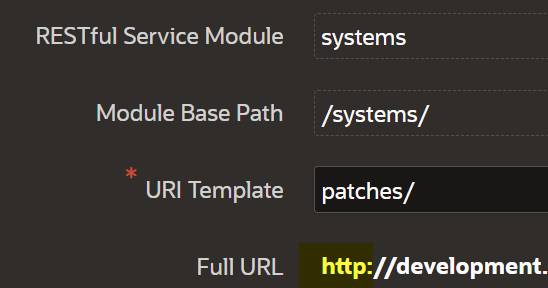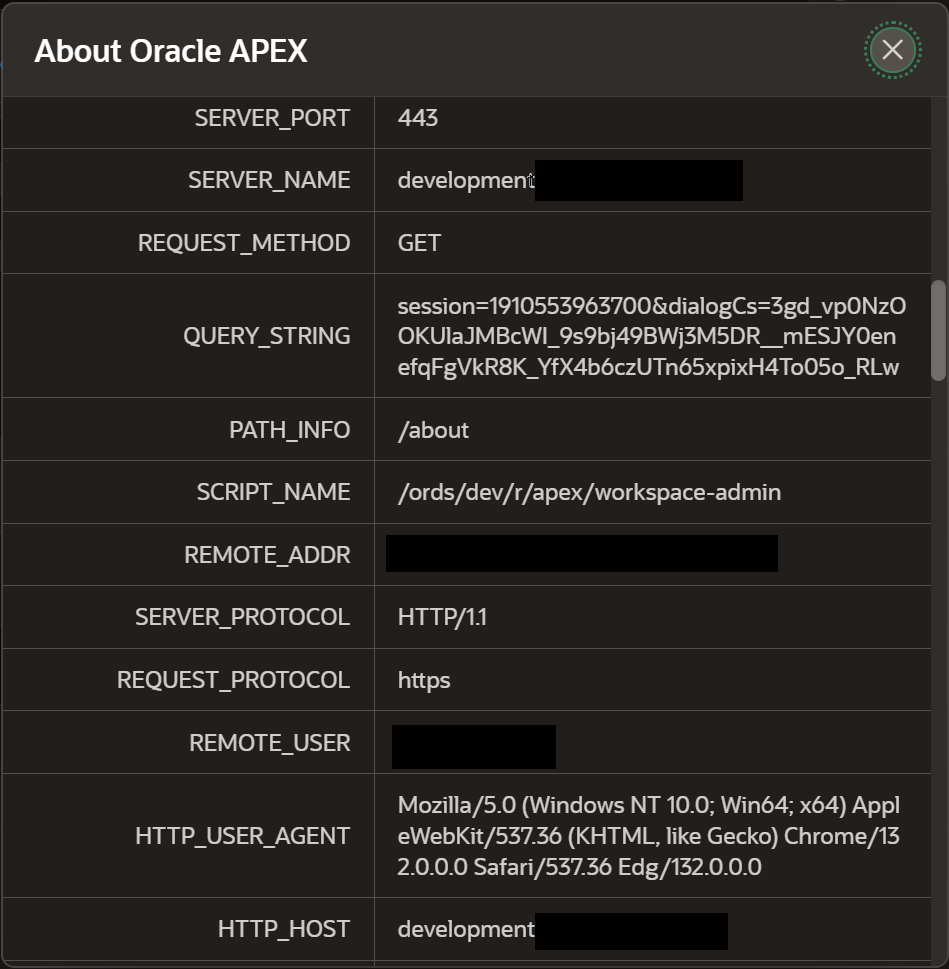I recently decided to run ords in stand-alone mode to decouple it from Weblogic 12.2.1.4 due to java requirements of the newer versions of ORDS. So, I set up a reverse proxy on OHS which is were the TLS support is setup for a secure connection, since ORDS is not exposed to the internet directly, this one is running in plain http and due to that the Full URL display on the Restful services section in APEX display http rather than https.
However, when you go to the About page in APEX you can see the request protocol is https. I also printing the whole cgi through an API and the X-APEX-BASE, REQUEST_SCHEME and they both show https. Part of that is due to the fact that I setup RequestHeader set X-Forwarded-Proto "https" as part of reverse proxy setup in OHS, and APEX is seeing this, while ORDS does not.
Not sure if this is a bug or maybe there's some other setting in ORDS like security.httpsHeaderCheck which I setup, maybe some other settings in jetty not implemented directly in ORDS.
I also setup https for ORDS and in that case, the Full URL displays the proper protocol https, however, I couldn't get it to work like that with the reverse proxy which is why I'm running http locally on ORDS.


Best regards,
Ralph Martin.